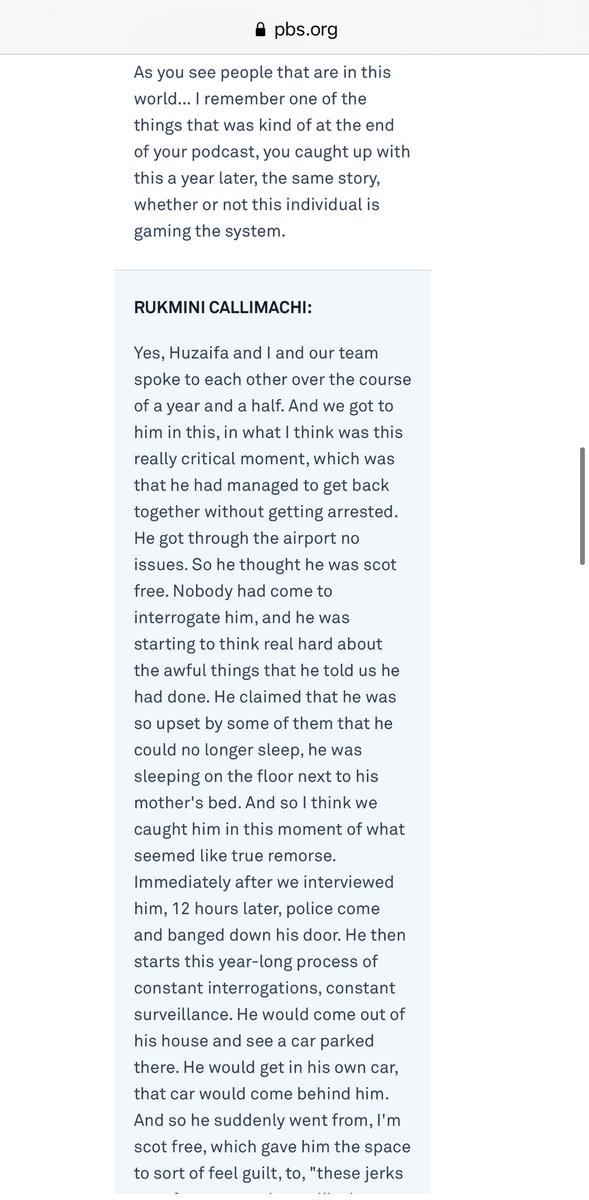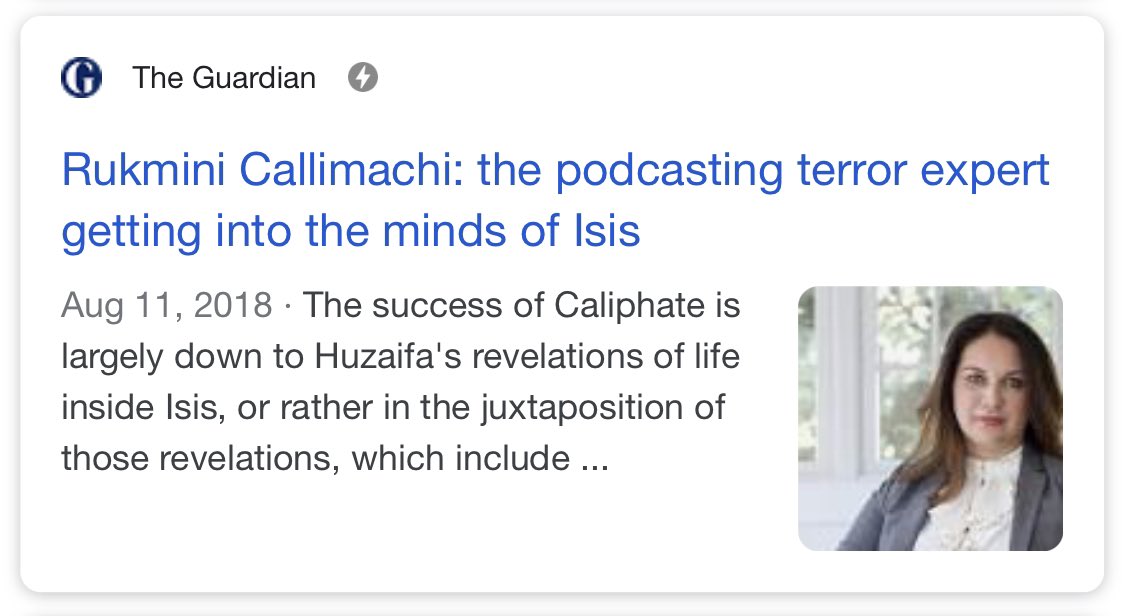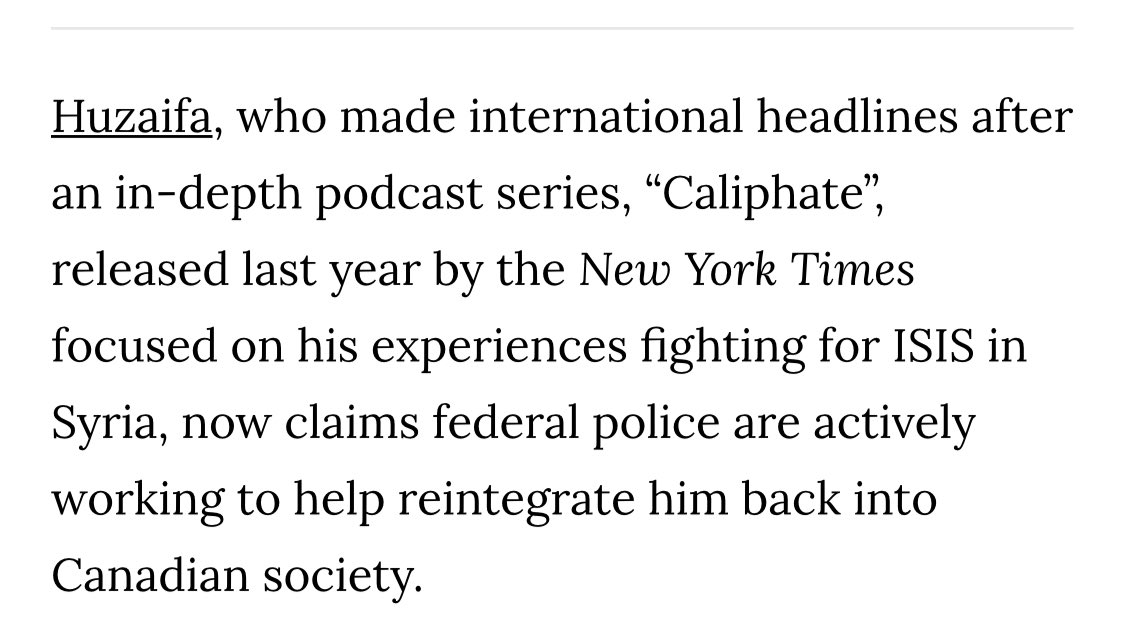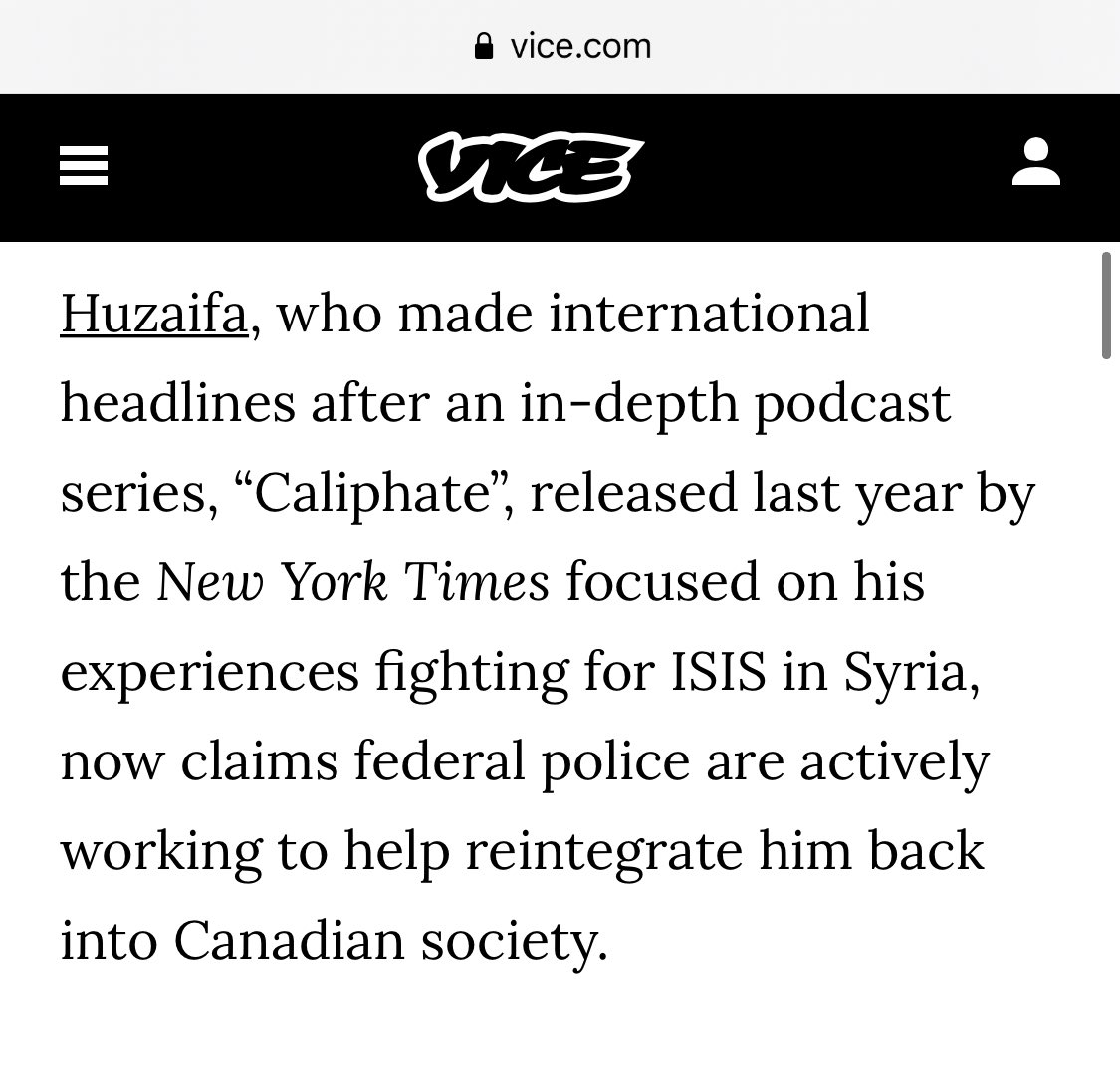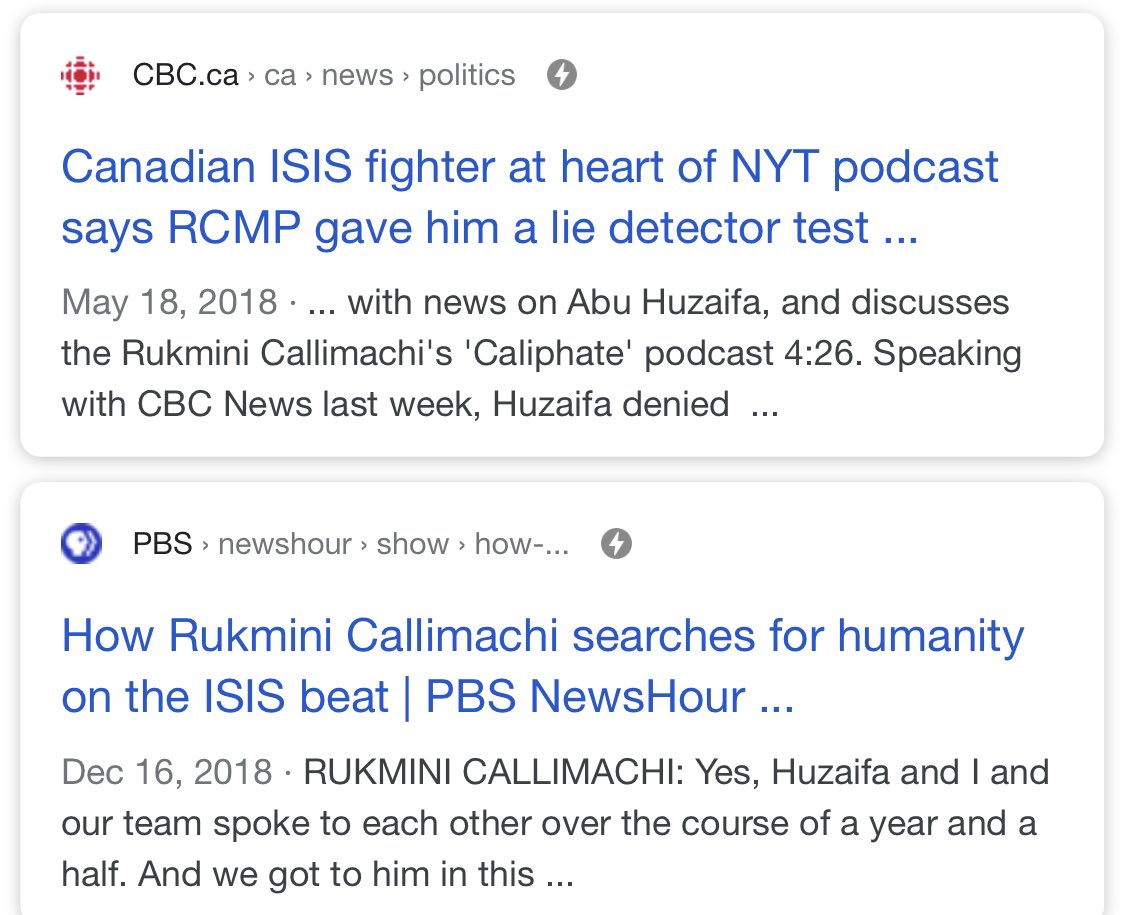Wow, super embarrassing! This story was the basis of a whole series produced by the NYT, the "award-winning" Caliphate.
The sad thing is: it& #39;s not the 1st time @rcallimachi falls into fake stories. This could be avoided by having someone able to vet sources & spot discrepancies https://twitter.com/StewGlobal/status/1309581575412232198">https://twitter.com/StewGloba...
The sad thing is: it& #39;s not the 1st time @rcallimachi falls into fake stories. This could be avoided by having someone able to vet sources & spot discrepancies https://twitter.com/StewGlobal/status/1309581575412232198">https://twitter.com/StewGloba...
Last October, she ran an article with claims that anybody who knows this subject would immediately dismiss as implausible. As we found out, it was based on faked documents supplied by dodgy sources. https://twitter.com/hxhassan/status/1189873094564945921">https://twitter.com/hxhassan/...
More damning (if we put the lack of expertise aside) is that she misrepresented quotes by an expert to make it sound like he was vouching for their veracity, even though he& #39;d raised concerns. https://twitter.com/hxhassan/status/1189956502523645953">https://twitter.com/hxhassan/...
The third major story written by the same journalist was based on the unethical smuggling of documents from Iraq, which the Iraqi embassy later complained about & forced the NYT to return the documents to Iraq. https://www.aljazeera.com/news/2018/05/31/nyt-plans-to-return-thousands-of-isil-files-to-iraq/">https://www.aljazeera.com/news/2018...
Each time, @nytimes ignore local complaints about its unethical/flawed reporting by dodging the issue. For example, even though documents were proven to be fake & all experts said that, the NYT ran a "rowback" that made it sound like experts were "torn" https://twitter.com/hxhassan/status/1275209139770269697">https://twitter.com/hxhassan/...
This is not about a person or a newspaper, it& #39;s much more pervasive, and we tend to give a pass to such mistakes involving extremists, even if the stories harm other people or at least produce myths.
Examples:
Examples:
One "expert" wrote a whole piece based on interviewing a fake Twitter account that pretended to be a U.S. rebel commander, even if it was immoderately clear the account was probably run by a pro-ISIS operative. https://tcf.org/content/report/suppose-america-gave-proxy-war-syria-nobody-came/?agreed=1">https://tcf.org/content/r...
Another expert wrote like the same article 30 times over years based on the false assumption that one extremist cleric was the official Mufti of ISIS. Despite pushback against that, that myth persisted in the jihadism studies circles. Based on unknown Telegram accounts.
This, again, would not be popularized by someone who knew these groups up close. It is the kind that only someone with a laptop/iphone & a list of social media accounts but no real expertise could write. That& #39;s the skill required to write such bad but & #39;interesting& #39; analysis.
Then the recent issue of the USG government selling a laughable talking point about the new leader of ISIS, which is likely to stick for a while, until it is debunked with time.
As explained here: https://cgpolicy.org/articles/exclusive-look-into-the-islamic-states-new-leadership/">https://cgpolicy.org/articles/...
As explained here: https://cgpolicy.org/articles/exclusive-look-into-the-islamic-states-new-leadership/">https://cgpolicy.org/articles/...
All this to say how this field of jihadism / counterterrorism is such a mess, full of & #39;experts& #39; who think compiling data online or documents can substitute for real-world knowledge of these groups. It& #39;s an important field, but it& #39;s a shitshow.
Also, "no": https://twitter.com/LailaAlarian/status/1309605458605465600">https://twitter.com/LailaAlar...
Also, "no": https://twitter.com/LailaAlarian/status/1309605458605465600">https://twitter.com/LailaAlar...
Here we go again, with a laughable excuse. If you have a main character in a podcast called Caliphate & build everything else around it, and he turns out to be a hoaxster, you call that narrative tension & hope to get away with it... once again.
https://twitter.com/rcallimachi/status/1309620500176556032">https://twitter.com/rcallimac...
https://twitter.com/rcallimachi/status/1309620500176556032">https://twitter.com/rcallimac...
Great thread on the real-world effects of such reporting: https://twitter.com/amaramarasingam/status/1309626921592983552">https://twitter.com/amaramara...
This line is how the @nytimes screwup is being justified: but let’s quickly explore this.
Hint: the character of Abu Huzayfa has been not just central to this whole story, but it was used to promote the podcast CONSISTENTLY. If you thought it was fake, why have him so central? https://twitter.com/mikeongstad/status/1309621832102957058">https://twitter.com/mikeongst...
Hint: the character of Abu Huzayfa has been not just central to this whole story, but it was used to promote the podcast CONSISTENTLY. If you thought it was fake, why have him so central? https://twitter.com/mikeongstad/status/1309621832102957058">https://twitter.com/mikeongst...
Examples of how Abu Huzayfa wasn’t depicted as a potentially fake story, but he was placed front & center in the @nytimes articles & podcast series. This is an interview with the reporter with PBS. Pretty clear it’s believed wholeheartedly, or otherwise deceptively.
More examples of how central the character of Abu Huzayfa was essential for the story and the promotion of it.
So, no, another laughable “rowback” won’t work.
Thread https://twitter.com/erikwemple/status/1309640814717546508">https://twitter.com/erikwempl...

 Read on Twitter
Read on Twitter